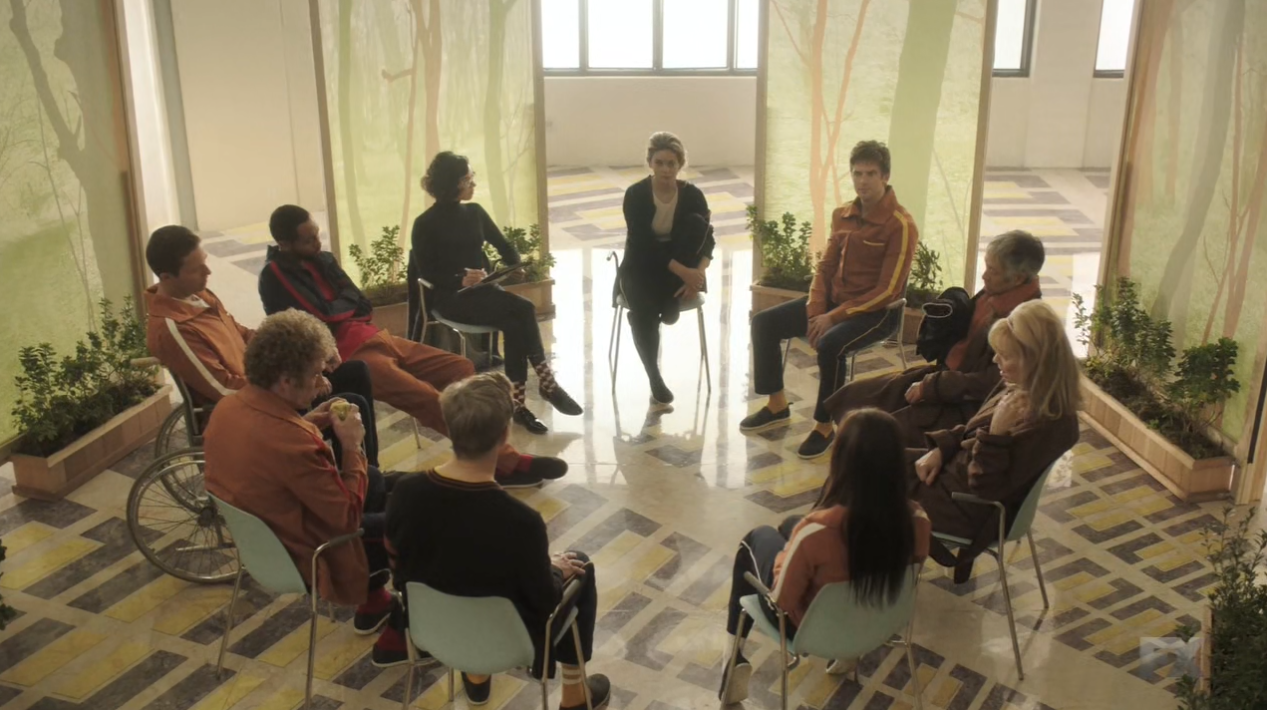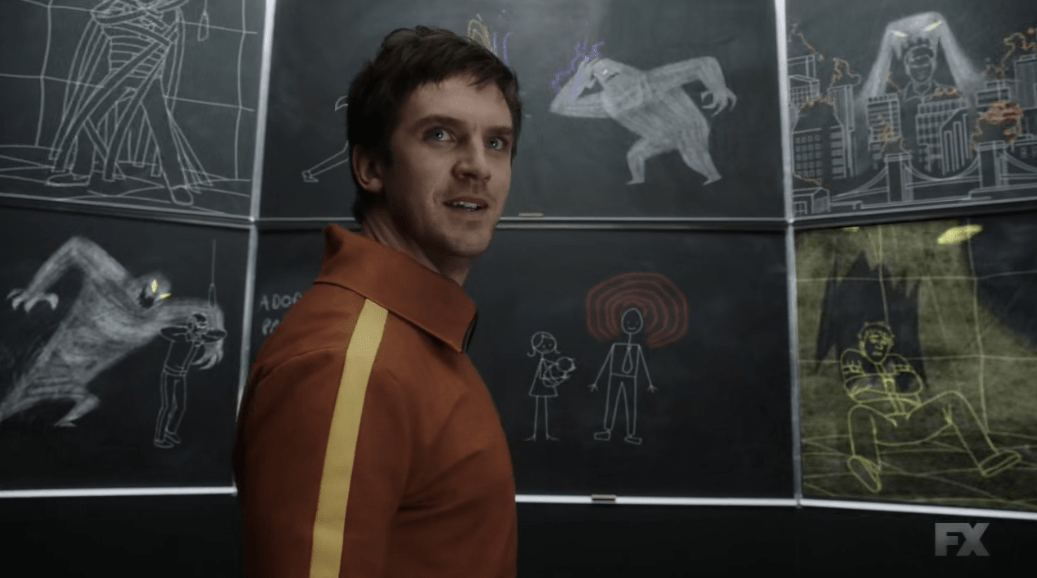Despite the fact that schizophrenia is often very difficult to diagnose and is widely considered to be a very uncommon mental condition, it’s one of the most frequently used character traits/plot devices in fiction, particularly in sci-fi. It’s easy to see why; the things we don’t know, or often misunderstand, about the human mind make for exactly the sort of fantastical tales explored by FX’s Legion and countless other creations that centrally feature someone with the illness.
Dan Stevens as David Haller in FX’s Legion. Image: FX
The problem with schizophrenia being so popular in sci-fi is that in the vast majority of cases, the way the disorder itself, those living with it, and the treatment of those diagnosed with it are depicted is a far cry from the realities of the situation. Certainly Legion definitely didn’t get everything “right” about schizophrenia and the other mental disorders commonly associated with it in its first season. But the show handled David’s journey to recovery and treatment with a carefulness and attention to detail that makes the new season that much more interesting.
Though it ultimately hasn’t had all that much bearing on Legion‘s plot in the first season, the biggest and most significant change between FX’s show and the Marvel comics it’s based on is David’s diagnosis itself. In the comics, he’s depicted as the powerful telepathic son of Charles Xavier and develops dissociative identity disorder (DID, which is also sometimes known as multiple personality disorder), which fragments his mind into dozens of different personalities – each with a unique mutant ability.
Legion‘s David is similarly gifted with vast psionic powers, but early on in the series, it’s established that he’s dealing with schizophrenia and not DID. Though the distinction might not seem all that significant at first, it’s important to keep in mind how frequently the two disorders are conflated and misrepresented in pop culture, something that can have material impacts here in the real world.

A number of Legion’s key players participating in group therapy while trapped in one of the Shadow King’s psychic projections. Image: FX
A survey conducted by the National Alliance on Mental Illness found that 64 per cent of the public incorrectly assumes that schizophrenia involves some sort of fracturing of the mind, something often attributed to the disorder’s Greek root words “schizein” (to split) and “and “phren” (mind). In reality, the division “schizophrenia” refers to is between one’s emotional and rational selves – but narratively speaking, the idea of a split personality often “works better”, because it’s easier to show in a demonstrable way compared to actual schizophrenia, which is a general term for a constellation of neural abnormalities that can manifest differently from person to person.
The show defining David’s condition as schizophrenia lays the simple, but important framework for the treatment he receives at the mutant haven Summerland. While there are plenty of mind-bending, trippy moments meant to convey to viewers how fractured and disorienting David’s perceptions of reality can be, his therapist (and Summerland leader) Melanie is resolute in her belief that the key to saving her patient – and all of her charges by extension – is to get him help.
Psychics whose powers make them a danger to themselves and the people around them are a trope we’ve seen in the X-Men live-action franchise time and time again, and the common thread between them all has been that everyone’s first response is to pump the person full of drugs. X2‘s Jayson Striker, Jean Grey in The Last Stand, and Professor X in Logan were essentially problems themselves that drugs alone could neither treat nor stop, but Legion pivots instead by focusing on David’s need for psychological healing in addition to medical treatment. Legion puts David through the painstaking and often frustrating problems of actually working through his mental health issues through group therapy.

David Haller working through a number of his painful memories in the form of animated chalk drawings. Image: FX
When traditional therapy seemingly fails to work, Legion smartly makes use of the weirdness of its premise to double down on the idea of emotional work being an important part of recovery. With the help of Ptolemy’s ability to project memories, David is forced to relive many of his most traumatic experiences. David learns vital information about the Shadow King – the evil entity they discover is hiding in his psyche and is arguably a twisted version of David himself – thanks to the one-on-one sessions he has with Oliver on the astral plane.
It’s similarly important that David’s relationship with his girlfriend and fellow mutant Syd – and her body-swapping powers – provide a number of moments in which David’s able to see that even though his particular kind of trauma is unique, he’s not alone in his experience trying to overcome it.
By the end of the season, almost all of David’s most important growth can be traced directly back to one of the many non-traditional therapy sessions we see him go through, and they’re all capped off with Legion‘s answer to a “pill”, the device Summerland scientist Cary fashions that’s meant to keep the Shadow King trapped in his mind. When David insists that he really thinks he’s bested the Shadow King and doesn’t need the device any more, Cary’s quick to remind him that his problem is merely being managed, not solved, yet another important message about treating mental illness that’s often lost in fictional narratives.
Even after expelling the Shadow King from himself and learning to control his powers, Legion doesn’t let up on the idea that there’s still so much more vital work that David needs to do. It’s that idea – that healing is an ongoing, complex and dynamic process – that made Legion‘s first season so strong. Hopefully it’s a big part of the story’s next chapter, too.
Legion‘s second season premieres tonight 8:30PM AEST on showcase.
